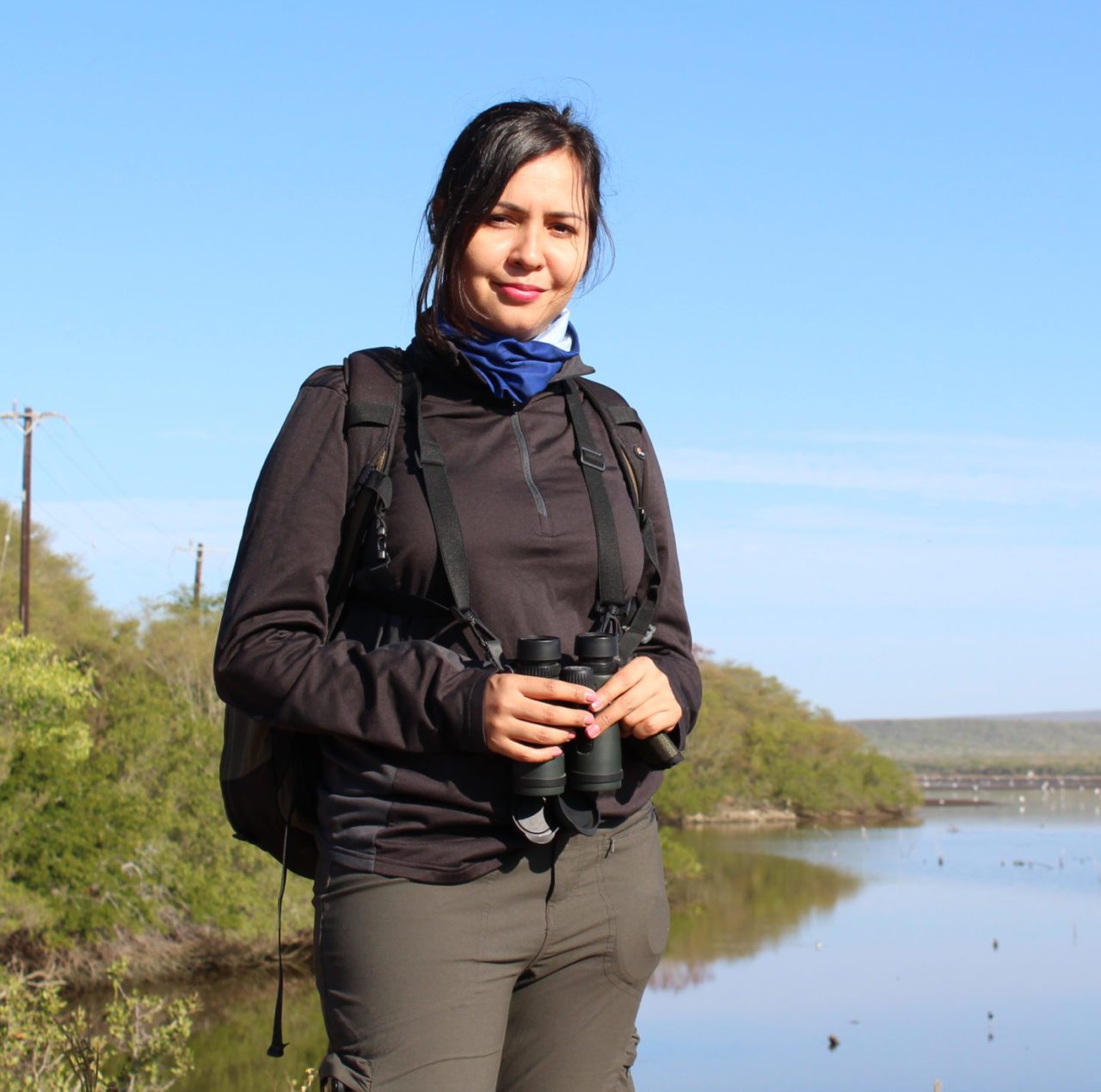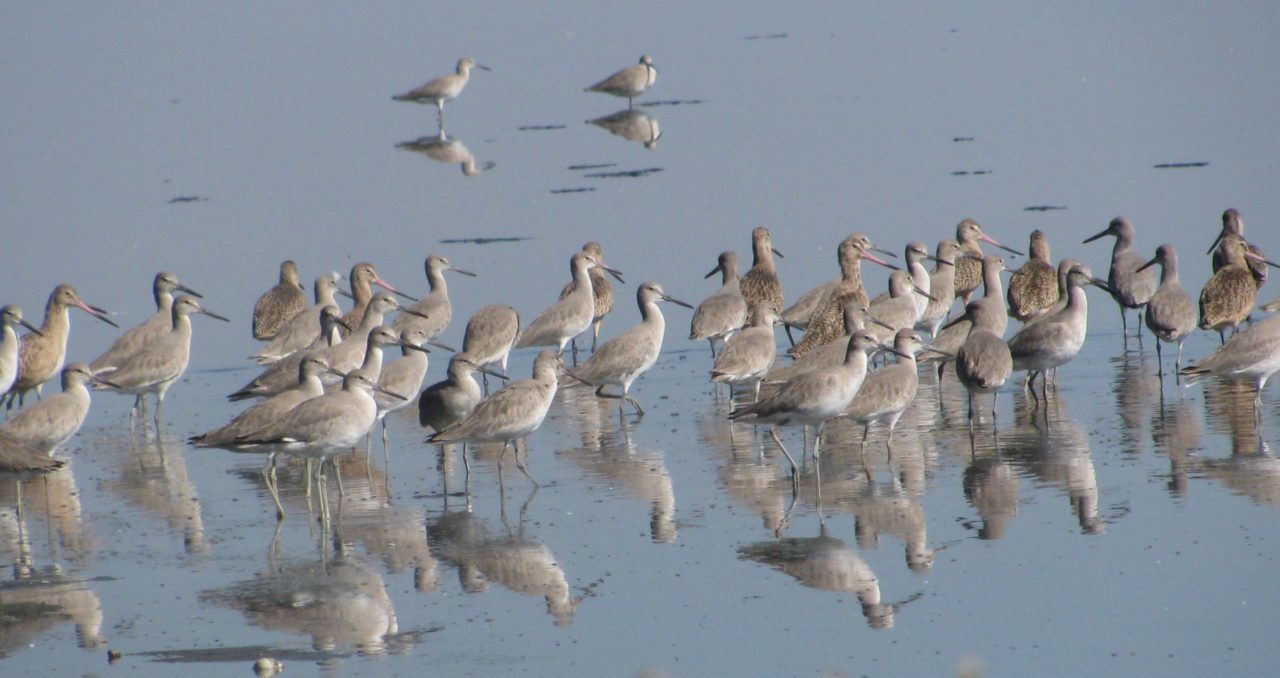Juanita Fonseca

Implementation of Shorebird-friendly Management Practices at Shrimp Farms in Mexico
Project Site: Ensenada de Pabellones, Sinaloa Mexico
Sector: Academia
Disciplines: Ornithology, Aquaculture, Planification, Conservation, Management
Collaborators: Centro de Investigación en Alimentación y Desarollo, A.C (Center for Research in Food and Development, A.C) Western Hemisphere Shorebird Reserve Network, National Autonomous University of Mexico, Environmental Defense Fund
Juanita is a biologist with a PhD in Aquatic Resources from the National Autonomous University of Sinaloa, Mexico. Her research interests focus on the ecology and conservation of shorebirds in various coastal wetlands, considering habitat use patterns. She has collaborated and led research projects in shrimp farms in northwestern Mexico, where she has identified management practices that can favor the conservation of shorebirds in these productive systems.
Currently, she works as a Conservation Specialist for the Executive Office of the Western Hemisphere Shorebird Reserve Network (WHSRN) in Mexico and collaborates in a working group to develop strategies that allow the integration of better management practices in shrimp farms for the benefit of shorebirds on the Pacific Flyway.
Her project is located in Ensenada de Pabellones (EP) Sinaloa, Mexico, a site of international importance within the WHSRN, with more than 300,000 shorebirds during the winter. Like in many other places of northwestern Mexico, the dominant economic activity is fishing and more recently aquaculture.
Due to habitat loss and transformation at the site, there is a need to find a balance between the shrimp industry and the conservation for shorebirds. Therefore, the management actions that are proposed in this project will be based on technical and scientific evaluations previously generated, which is adapted to current legislation and considers specific producer needs.
The project seeks to promote the implementation of best management practices in shrimp farms located in EP, to improve and provide habitat for shorebirds during the annual shrimp production cycles and that are compatible with the activities of the producers.

With the help or our main partner, a hydrodynamic model will be developed to extend the time that harvested ponds are used as foraging sites for shorebirds. We will also mitigate bird disturbance promoting non-lethal methods and organizing awareness workshops. In addition, through governance workshops, we expect a gradual increase in the participation of producers in northwestern Mexico for these management recommendations, while focusing efforts during peak bird migration periods, using eBird abundance data. These ecological reconciliation measures will be an important step towards sustainable aquaculture with meaningful applications for the overall conservation of shorebirds in northwestern Mexico and along the Pacific Flyway.
The host institution is the Research Center for Food and Development, A.C (CIAD), a public research center of the National Council of Science and Technology, whose mission is to contribute to the sustainable development and well-being of society in the areas of food, nutrition, health, regional development and natural resources. The mentor for this project is Dr. Arturo Ruiz Luna, senior researcher at CIAD-Mazatlán, in charge of the Environmental Management Laboratory since 1993. The main cross-sectoral collaborator is Dr. Christian M. Appendini Albrechsen, researcher at the Coastal Engineering and Coastal Processes Laboratory of the Engineering Institute of the National Autonomous University of Mexico. The biologist Fernando Aceves, manager of the El Chapeteado shrimp farm and Ernesto Gómez, manager of the Rebecca shrimp farm will also participate as additional collaborators.